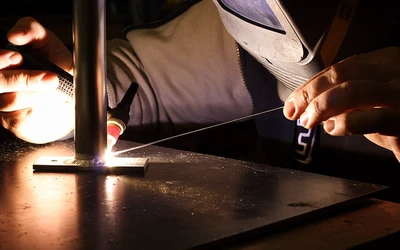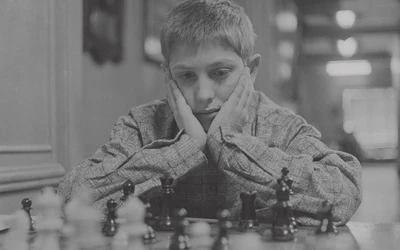
Soviet Chess History
Prophylaxis – Learn from Anatoly Karpov
“Prevention is better than cure” - D. ErasmusIn Chess, quite often we forget to consider our opponent’s intentions. As a result, we miss important moves in our calculation, which completely changes the course of the game. I am sure we all can relate to such instances where our opponent’s move came as a surprise and decided matters in his favour. Why does it happen?
The most common reason is - not paying enough attention to our opponent’s ideas. This can happen because of various reasons - underestimating our opponent’s resources, relaxing after achieving an “objectively” winning position (remember it’s not over until it's over!), being overconfident, etc. It is very common because we are usually concerned with the ideas we are creating.
We want to be the creator of ideas and are therefore naturally inclined towards what we can do. It is important to remember that Chess is a two-player game! We can only implement our ideas if we understand what our opponent is up to because our opponent also has the same intentions: he also wants to implement his own ideas. I consider this as ‘Chess selfishness’- being only concerned with your own ideas, and in chess as well as life, being selfish is something one ends up regretting.
Tartakower once nicely remarked – “Your opponent also has the right to exist”.
Prophylaxis is originally a medical term that refers to the treatment given or action taken in order to prevent disease. Similarly, in chess, prophylaxis would refer to the actions we take in order to prevent our opponent from implementing his plans.
Nimzowitsch introduced this term in his famous book ‘My System’. He stressed two aspects that defined prophylaxis in Chess – Prevention and Overprotection.
One thing that makes elite players so strong is that they pay a lot of attention not only to what their opponent intends to do but also to what their opponent can do. They are constantly searching for plans not only for themselves but also for their opponents.
Anatoly Karpov was one of the best players in this regard. Known for his exceptional prophylactic skills, he would constantly search for the best plans for his opponent and fight against them while trying to implement his own ideas. Not allowing even the tiniest of counter-chances to his opponents, Karpov would happily venture into endgames with a tiny advantage, if the position demanded.
A small mistake committed against Karpov would frequently prove to be decisive since he was merciless once he got an advantage. We can learn a great deal about prophylaxis from Karpov’s game. Let’s look at a game by Karpov which is rightly regarded as a master-class in prophylaxis.
I would like to offer some suggestions to the readers on improving prophylactic skills
- Solving endgame studies is very good for training prophylactic skills since endgame studies require the solver to find the best defences.
- Solving tactics from the opposite side – if it’s white to play, look at the position from the black side and solve. This gets you into a habit of thinking about your opponent’s possibilities seriously.
- While solving, consider a position as solved only when you have considered all the variations for your opponent.
- Do not relax until the game is over. The game of chess comprises a lot of unexpected resources, and therefore, a lapse in concentration can prove fatal.
- During the game, look for refutations of your own ideas. Calculate as seriously for your opponent as you do for yourself.
Study games of great masters of prophylaxis – Karpov, Petrosian, Nimzowitsch to name a few.
Now, I would like to offer some positions for the readers, where they can try to play like Karpov!
Solutions will be published in the next article. Happy solving!
1 )
2)
3)
You may also like
 GM ChessPathshala
GM ChessPathshala10 Exercises of the Week #29
10 positions for you to solve and enjoy! GM ChessPathshala
GM ChessPathshala10 Exercises of the Week #30
10 positions for you to solve and learn! thibault
thibaultHow I started building Lichess
I get this question sometimes. How did you decide to make a chess server? The truth is, I didn't. GM ChessPathshala
GM ChessPathshalaImportance of Pawn Endgames in Chess!
Same tournament. Same round. Two adjacent boards. A pawn endgame! Were the Grandmasters upto the tas… NM visualdennis
NM visualdennisMy Ultimate Guide to Chess960
In-Depth Guide about History, Strategies & Opening Tips, Resources for Chess960 and more GM ChessPathshala
GM ChessPathshala